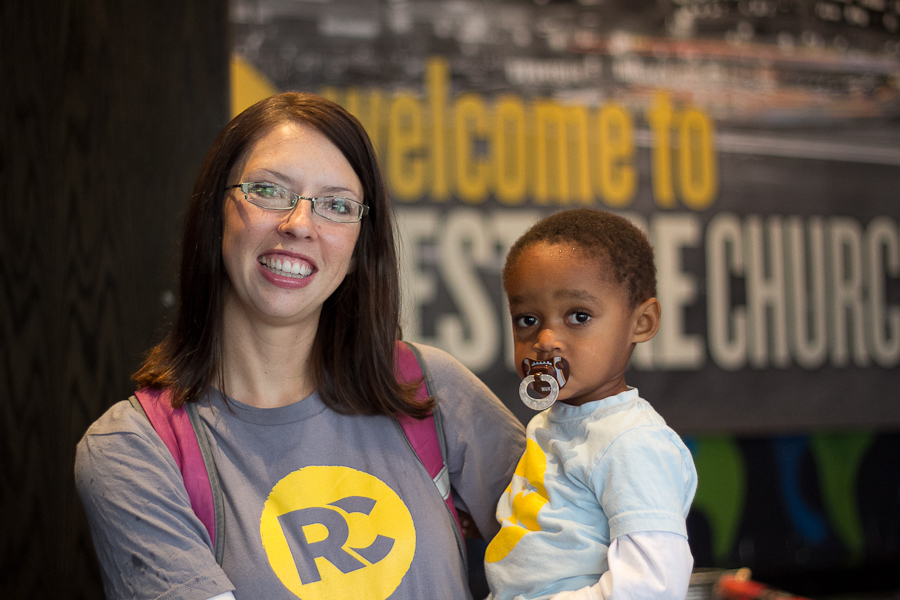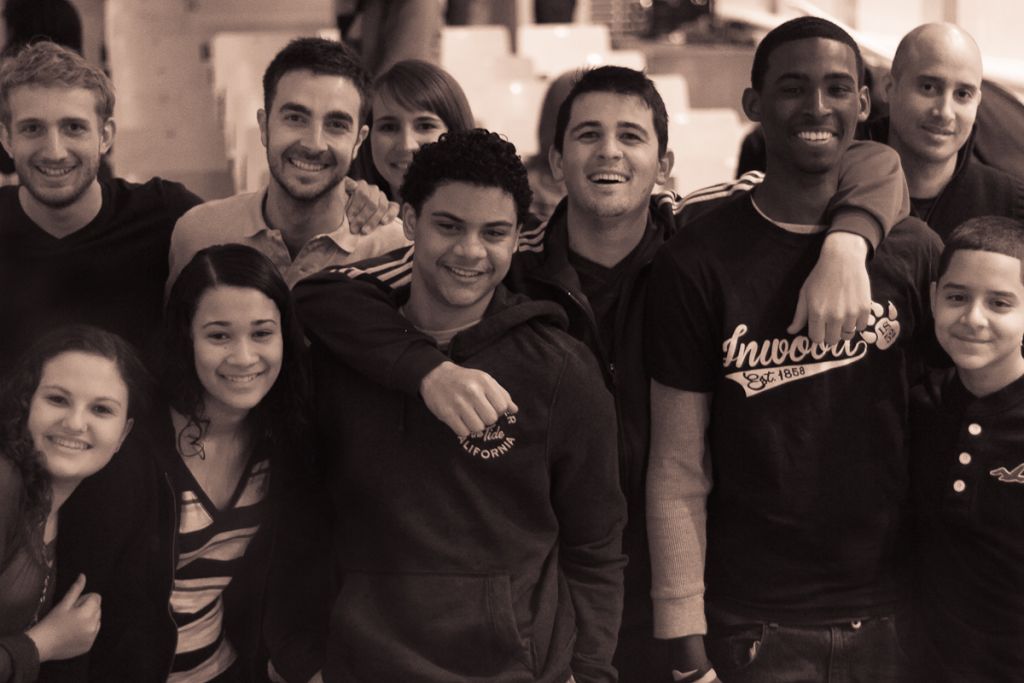Ask the Missional Pastor
Churches in the last 50 years have moved towards age-specific worship and learning. A chasm is growing between youth and adult church experiences and many churches are intentionally incorporating youth back into congregational life.
So we asked our pastors who lead missional communities: How do you incorporate younger members into the life of the church?

In the worship service:
Chris Travis, Everyday Church:
- In our worship services, we have separate, age-appropriate experiences for kids, like many other churches you might visit. Having a separate adult/kid experience frees us to really encourage people to do stuff together, as a family, in our midweek groups.
Justin Anderson, Redemption Church:
- We encourage parents to bring their kids into service as soon as they think they can sit through service without creating a big disturbance. I'm cool with small disturbances; I think if you are committed to multi-generational ministry you have to be to some extent.
- We have children's programming for birth-5th grade. Our curriculum is written to coincide with our adult teaching so that we can create discipleship and discussion opportunities for families. In addition, our 3rd-5th graders spend worship and Communion time with the adults and are dismissed to classes after Communion each Sunday. 6th-12th grade spends the entire time with adults.

Justin Anderson:
- Redemption Church also bases the children’s ministry curriculum on the sermon. Our kid’s team writes the bulk of the curriculum themselves so kids are learning an age-appropriate version of what the adults are learning. We hope that this allows parents to engage with their children. It adds some work for the kid’s team but the results are well worth it. All in all, we try to get children involved in as much as possible so they feel like they're a part of the life of the church. When they regularly interact with older people, they have potential role models.
In Midweek gatherings or groups:
Chris Travis:
- During the week, the word that jumps to mind is flexibility. Individual groups are free to experiment. Everyone eats together, but then during prayer or discussion or serving together, different things happen. Sometimes, everyone meets all together. Other times, the kids split off (sometimes all of them, or maybe just the real young ones) to either entertain themselves (usually with one or two adults) or maybe do some kind of learning together. In our group meetings, we often split off into even smaller groups (3-5 people) and then reconvene to share and debrief.
Aaron Thomas:
- Our gatherings last about 90-120 minutes. Two of our missional communities (MC) have a lot of kids and they spend the first 30-45 minutes of MC Gatherings with the adults during the meal time. Occasionally we also include them in the 2nd part of MC Gatherings when we spend time in prayer, mission planning, stories from the mission field, etc.. We've found that our kids really "get" the person of peace idea. (For more on being a person of peace, read here.) We have children share stories of friends they are making, friends they want us to pray for, etc. Our boys in particular run around to our neighbors before MC gatherings to invite their neighborhood friends over.
Justin Anderson:
- For groups, this answer is tied into our group structure. Our Communities are small (5-7 people) and "closed" (in the sense that you have to be assimilated into them through relationship, not signups or website info). This guarantees that there will never be 20 kids running around one house. San Francisco also has the least amount of kids of any city in America by far.
- The other context we have is our Neighborhoods, which is a larger group setting that is usually centered around a social or service moment. This is a mixed bag when it comes to kids. We'll do art walks, dinners out and prayer nights that aren't super kid friendly but also have BBQ's and service projects where the kids can and do participate.

How do children see themselves as part of the mission of your church plant?
Aaron Thomas, Restore Church
- One of our filters for missional opportunities is "Can our children serve with us on this?" We want them involved on mission if they are old enough. Most of our missions, pre-school kids and above can play some sort of role. For example, our MC just provided a PTA Dinner for teachers in the poorest school in our city. The PTA at this school can't afford to provide dinner for teachers on parent/ teacher conference days. So the school reached out to us and our MC prepared the meal. Our children made cookies, wrote notes to the teachers, and decorated the cookie bags. Some of our kids went with the adults into the school to actually serve the meal to the teachers.
Chris Travis, Everyday Church:
- Say we're learning a Bible story at Everyday. Groups might split off and figure out a creative way to retell the story to the larger group. In that instance, the kids might split off as a group unto themselves, under the guidance of an adult, and work on retelling the story with finger puppets, or as an interpretive dance, or as a rap. Obviously, that can be pretty hilarious, and everyone appreciates it. But it’s sometimes just as cool to scatter the kids throughout the smaller groups. It's pretty cool watching a 60-yr-old, a couple 20-somethings, and a 7-yr old all working together to retell a story to the larger group.
What about those awkward moments?
Justin Anderson, Redemption Church
- We try to create an environment in our community where open conversation and dialogue can take place but the primary purpose of that moment is twofold: (1) relationship building and (2) allowing our leaders to watch and listen for opportunities to care for and disciple the members of their group. So a kid running in and interrupting their dad while he's in the middle of a great joke can actually create a great moment to see how he responds to distraction, disobedience and disrespect. So the real life part of having kids around is actually a benefit to us. Also, it's really fun to see a 23 year old guy try to flirt with a girl when a 3 year old is punching him in the leg.
Thanks to our pastors Chris Travis, Justin Anderson and Aaron Thomas for sharing their experience.
Do you have any questions about what makes a missional community? Let us know on facebook or twitter. What would you like to ask a missional pastor?
